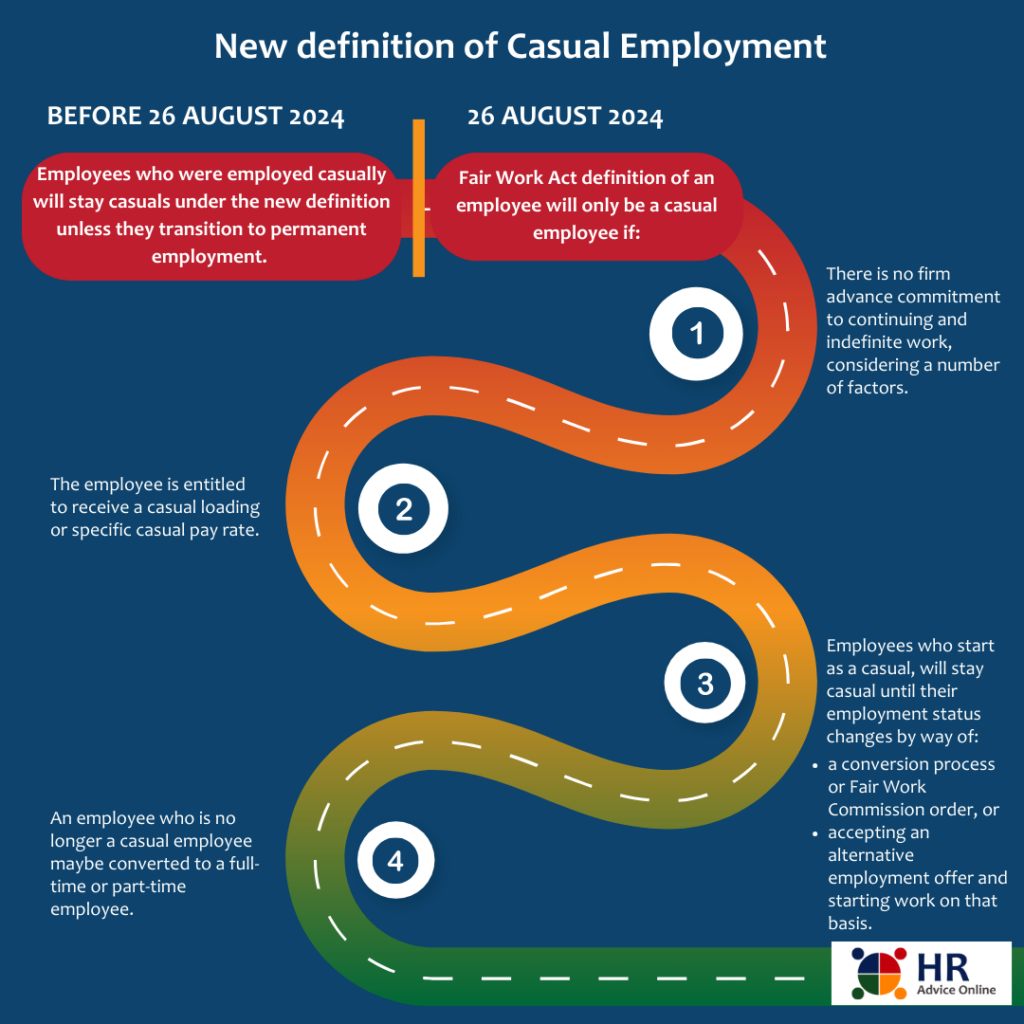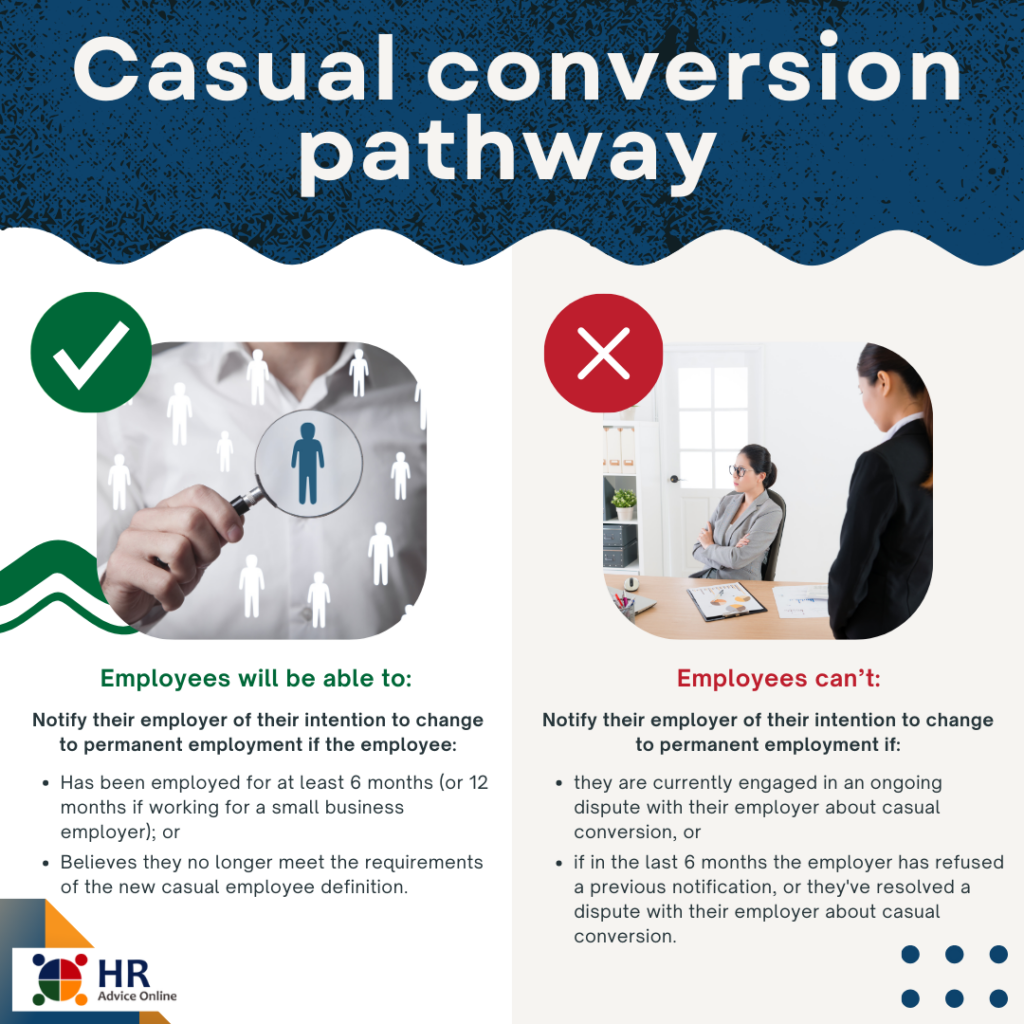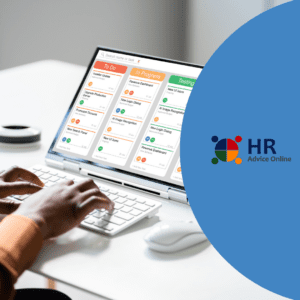Understanding the casual employment relationship, and your obligations

The casual employment relationship is changing, and it is important to understand what defines employment as a casual versus permanent ongoing employment.
A new definition of “casual employee” will be introduced to the Fair Work Act from 26 August 2024.
How do we know if the employment relationship is casual?
Under the definition in the Act an employee will only be a casual employee if:
- There is no firm advance commitment to continuing and indefinite work, considering several factors including the real substance, practical reality and true nature of the employment relationship.
- The employee is entitled to receive a casual loading or specific casual pay rate.
Employees who were employed casually before 26 August 2024 will stay casuals under the new definition unless they transition to permanent employment.
Employees who start as a casual, will stay casual until their employment status changes by way of:
- a conversion process or Fair Work Commission order, or
- accepting an alternative employment offer and starting work on that basis.
What is a firm advance commitment?
An assessment of whether there is a firm advance commitment to continuing and indefinite work, is assessed upon the real substance, practical reality and true nature of the employment relationship and several other factors.
Other factors that must be considered include:
- if the employer can offer or not offer work to the employee (and what this currently looks like)
- can the employee accept or reject work
- where it is reasonably likely there will be future work available to the employer’s business, based on the nature of the business
- if there are full-time or part-time employees performing the same kind of work in the employer’s business.
- where the employee has a regular pattern of work.
Changing from casual to permanent employment (casual conversion)

From the 26 August 2024 a new pathway will be introduced for eligible employees to change to permanent employment if they want to. This will replace the current rules for changing to permanent employment.
Employees will be able to notify their employer of their intention to change to permanent employment if the employee:
- has been employed for at least 6 months (or 12 months if working for a small business employer)
- believes they no longer meet the requirements of the new casual employee definition.
- are currently engaged in an ongoing dispute with their employer about casual conversion, or
- in the last 6 months:
- their employer refused a previous notification
- they’ve resolved a dispute with their employer about casual conversion.
Do you want to learn more about how to best manage your casual employment relationships?
Do you seek to understand more about casual conversion? Or perhaps you have other HR matters you would like to discuss? Please contact us at [email protected] or 1300 720 004.




